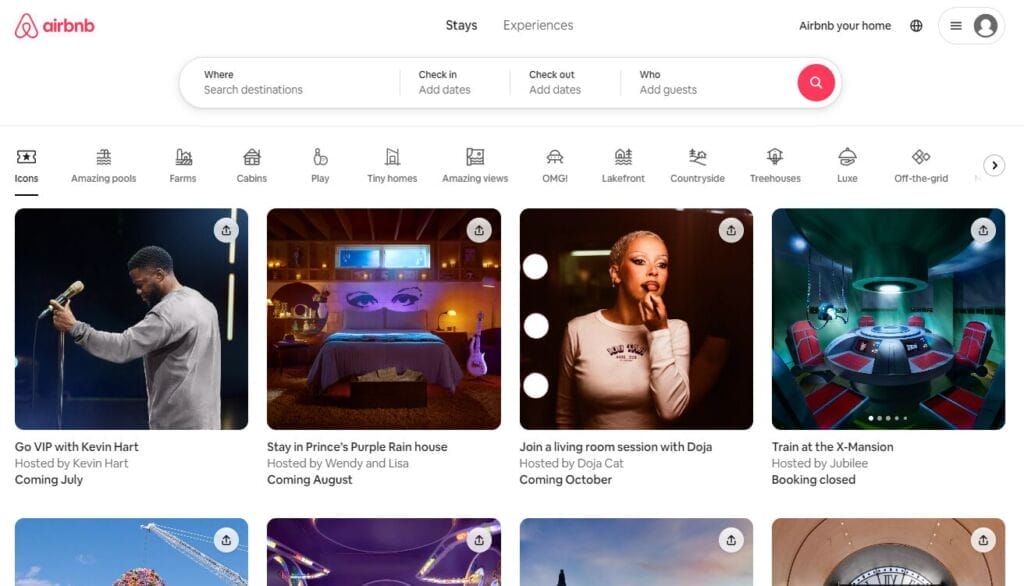Starting a business is similar to bungee jumping in that it is both exciting and dangerous. However, it’s difficult to beat watching your idea become a reality. Startup companies understand the importance of digital marketing to their success, despite the fact that the majority of their employees are technologically proficient.
However, if you jumped and discovered that your digital marketing failed, don’t worry. There are various digital marketing tactics for startups.
Digital Marketing Strategies for Startups
Start with keyword research
Keywords are the foundation of your strategy for everything from SEO to pay-per-click (PPC) ads. The more essential your keywords are, the more likely you are to reach the intended audience.

Please use at least two words to describe what you are selling, delivering, or offering. These tools can help you come up with catchphrases for your advertisements and website content. In addition to traditional keyword research methods, keep the following in mind:
- Keywords should be different for prospective customers at each stage of the sales funnel.
- Existing content: If two or more pages on your website target the same term, they compete on the search engine results page (SERP), lowering your ranks.
- Branded keywords: this is especially relevant for PPC ads; however, include branded keywords in your marketing strategy (since your competitors will).
We all have the inclination to overcomplicate things. Google Search is undoubtedly the best and most free tool available. Keyword research tools are helpful, but don’t forget that Google Search is extremely intelligent. Consider the people you want to reach, then conduct a few Google searches. Do your competitors show up?
What does Google believe the text will be? Check out the “People Also Ask” and “Related Searches” lists. Once you’ve done your research and identified the best keywords to target, you can better organize your Google Ads campaign, write better ad text, arrange your content, improve your website, and design landing pages that compel visitors to act.
Conduct a full website audit
More than 28% of people who click on the first native result on Google will see the second result. As one might expect, the quality of your website determines the effectiveness of your digital marketing campaign. Google strives to make searches as easy and beneficial as possible for its users.
Google achieves this by using web crawlers to read and index your website’s pages, as well as an algorithm that ranks websites based on their usefulness and value to users. If you want to increase your website’s ranking, you must act swiftly.

Ahrefs can be useful here. Enter your website’s URL and choose “Run an audit.” Ahrefs will crawl your website and return a “health” score. It will also help you find areas for improvement. This involves repairing any broken links, verifying your site’s speed, establishing how well it functions on mobile devices, and ensuring that your pages are correctly indexed.Ahrefs can be useful here.
Google will reward you for producing a good website, and people will stay longer if it is interesting. You will have more time to talk to customers and persuade them to buy. You want your website to be exceptional in every way, from its design to how it interacts with search engines.
Create a Content Marketing Plan
People who are interested in your startup will profit more if you have an effective content marketing plan. Long-term content marketing is a type of marketing that continues and produces greater results.Startups must develop a content strategy to improve brand engagement across all available channels.
Raise brand awareness through social media marketing
In today’s digital age, social media marketing is a crucial aspect of spreading the word about your brand. It’s the most effective approach to spreading your message to individuals all around the world. In addition, new firms must maintain their social media presence.

Startups with limited funds or resources should carefully organize their social media marketing; otherwise, it will be too much for their firm. Social media sites are an excellent way to connect with others while also improving the overall user experience.
Engage with the audience through email marketing
Email marketing has evolved into a new phase in which firms and startups send tailored emails to their followers about new products, sales, and other topics.

When compared to other methods of selling, personalized emails have the highest return on investment (ROI). Now that emails can be delivered automatically, start-ups can target clients or groups of people depending on their interests.
Measure and analyze the results
To make data-driven marketing effective, results must be measured and analyzed. First, identify your KPIs. Conversion rates and page views are two examples. These statistics will inform you how successful your advertisements will be. Next, collect information from multiple sources. This includes features for tracking and customer posts.
Organize this information to make it easier to see. You can access the information in numerous ways. There are two types of tests: class and A/B.

This helps you identify patterns and themes. Following that, there will be insights. Analyze the data to determine how customers act and what they prefer. These customer insights can help you decide how to sell your firm.
Always test your plans. Change and improve them based on the information. Repeat this approach to improve your results over time. Don’t disguise what you’ve discovered. Give them to your team so you can all make educated decisions. Tools for visualizing data can be valuable. They help others grasp what you discover. Finally, keep track of your development. Compare your key metrics to your goals on a regular basis to identify areas for improvement.
How to Determine Effective Marketing Strategies for Startups?
A well-known and reputable internet marketing company will provide you with a variety of tools to help your new business develop. However, if you operate a new firm, you should develop a marketing strategy before utilizing various advertising services. Let’s look at how to create a digital marketing plan for startups.
Set your goals
It is difficult for a startup company to set goals. Many new firms have two primary goals: increasing brand awareness and acquiring new customers. How successful a new company anticipates being in business will determine what they want to do. Before you can create an effective marketing strategy, you must first list and prioritize your business objectives as part of your go-to-market strategy.
Define your target audience
It makes no difference what type of business your startup is; the key to its success and growth is connecting with the appropriate individuals. Their goal is to determine what type of clients your firm needs. Once you’ve made your decision, you should focus on developing a strategy to reach your target audience within the budget you’ve set. Startups sometimes run out of money before reaching their intended audience because they did not prepare properly.
Determine your market space
Many firms fail to get traction in the market because their products or services do not fulfil client demands. To avoid this, entrepreneurs must conduct market research and determine what they need to do to fulfil expanding demand. Start-ups should not be constrained; instead, they should aim to reach a large number of individuals at the correct time.
Fixing Budget
A startup business’s marketing plan is critical since it determines how much money they may anticipate making. When selling something, the plan will never succeed unless you know how much to spend. Before deciding how much to spend on marketing, you should know how much it costs to run your firm, what your goals are, and how you want to promote yourself. It’s simple to meet new people and expand your business.
Examples of great startup marketing strategies
Dropbox

Dropbox’s early marketing efforts included a referral program. Dropbox increased storage space for both the individual who made the referral and the one who received it. People who had already used the tool had an incentive to tell their friends about it, which helped them get new users.
Hootsuite

As a startup, Hootsuite’s early marketing strategy was to establish a strong social media presence and community by interacting with users across several platforms and providing helpful content. They also used events and influencer marketing to spread the word about their firm.
Slack

Content marketing played a significant role in Slack’s early marketing strategy. People working with technology had to pay close attention. It is named “The Slack Blog.” They created white papers, lessons, and files, among other things.
Airbnb

The way Airbnb presents itself has made customers feel as if they belong and are part of a community. User-generated content, such as images and reviews, is an important component of how they showcase the unique experiences on their site. They also employ events and influencer marketing to raise awareness of their brand and encourage community involvement.
Uber

When Uber first began, they offered steep discounts and specials to entice people to sign up. They then depended on word-of-mouth and social media to continue their expansion. They collaborated with other businesses and events to increase brand exposure.
HubSpot

HubSpot’s early marketing strategy focused heavily on inbound marketing. To do this, provide clients with useful content and experiences on your website so that you do not have to bombard them with advertisements. They employed a blog, social media, and SEO to attract new buyers.
Canva

As a new startup, Canva’s marketing strategy is to provide both a free and a premium version of its design tool with more capabilities. This allowed them to quickly acquire a large number of customers, which they could then monetize by selling upgrades and additional features.
Common mistakes startups make
90% of new firms fail in the long term. They frequently make critical errors that can derail their marketing efforts. If you’re aware of these mistakes, you can avoid making them:
Ignoring Word of Mouth
Many new firms focus solely on Internet marketing, failing to recognize the potential of word-of-mouth marketing. They fail to realize that a satisfied customer not only returns but also refers new customers via reviews and word of mouth. To maximize the power of word-of-mouth, ensure that your customers are satisfied from the beginning.
When customers enjoy your product or service, they are more likely to tell others about it. Create a program in which you reward current customers for referring you to new ones. This normalizes growth and benefits everyone. Networking allows you to meet new clients and business partners at workshops and events in your field. This can help spread the message even more.
Overspending on marketing
Marketing costs might easily escalate. It makes no difference how much you sell if your product isn’t excellent enough. Divide your money equally between marketing and creating new products.
If you sell good products, they will simply increase your consumer base and improve your marketing efforts. Consider low-cost marketing tactics that provide a high return on investment, such as social media ads or content marketing suited to your audience.
Lack of Clear Goals
Marketing initiatives can become disorganized and ineffective if they lack clear, measurable goals. This wastes both time and money. If you don’t want your marketing efforts to go unnoticed, set clear, measurable targets.
KPIs, or key performance indicators, will help you keep track of your progress. This will not only help you plan your marketing strategy, but it will also reveal where you are succeeding and where you need to improve.
Targeting the Wrong Audience
Startups can misidentify their target demographic, wasting time and money on ineffective marketing initiatives. As a solution, conduct extensive market research to better understand your target customer.
Create consumer personas to learn about their preferences, requirements, and challenges. Make certain that your marketing strategies take these distinct characteristics into account. As your company develops and evolves, you must keep your understanding of your consumers current.
Ignoring Analytics
When a new firm does not know who its ideal consumer is, it wastes time and money on ineffective marketing. Take the time to learn about the company and the customers who purchase from you. By creating client profiles, you may learn what your consumers desire, need, and are having difficulty with.
Make sure to incorporate these distinguishing characteristics into your marketing strategies. Even if your firm changes or grows, you should continue to learn more about your clients. Data analysis can help you determine what your customers want and how to provide it to them.
Conclusion
Being successful in digital marketing is difficult, especially with so much competition, particularly on social media and in content marketing. To become proficient in internet marketing for startups, a significant amount of time and effort is required.
Following these essential digital marketing best practices can help you stand out and achieve tangible results from digital platforms. However, make sure you have the appropriate strategy and mindset from the start.
Vijay Sood is a seasoned digital marketer with a passion for driving online growth and innovation. With a robust background in developing and executing comprehensive digital strategies, Vijay excels in leveraging SEO, content marketing, and social media to boost brand visibility and engagement. His expertise lies in transforming data-driven insights into actionable marketing campaigns, helping businesses achieve their digital objectives.
